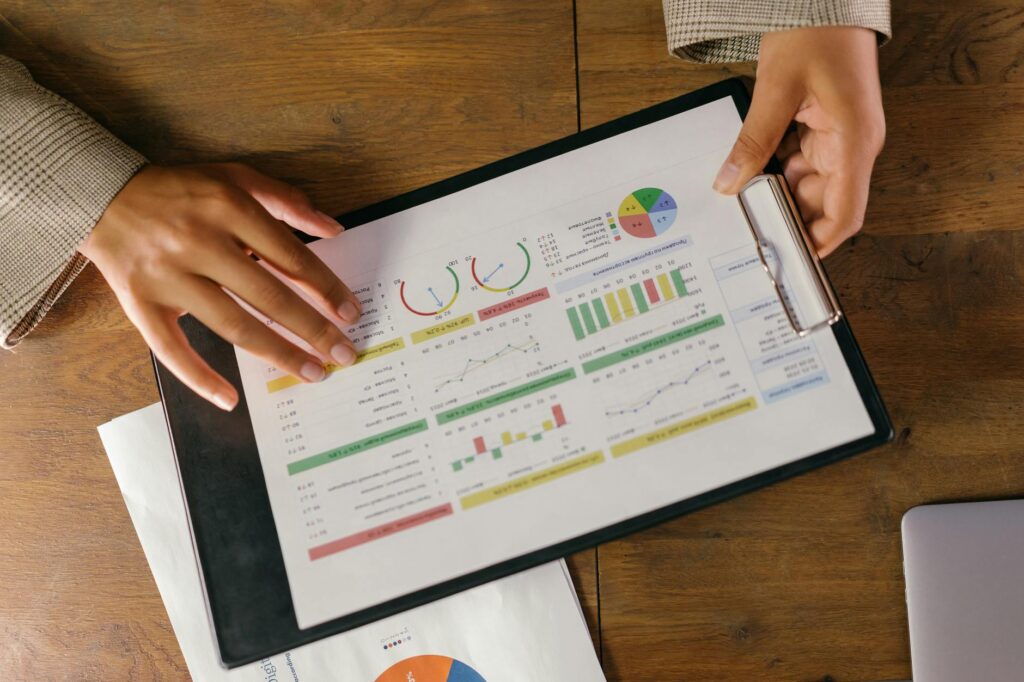What is progress evaluation?

What is progress evaluation?
Progress evaluation is a crucial concept in both personal and professional realms. It allows individuals to assess how far they’ve come toward their goals and identify areas that need improvement. Think of it as a compass that guides you on your journey of growth. By evaluating your progress, you can maintain motivation and make necessary adjustments to your strategies.

Photo by Mikhail Nilov
Understanding Progress Evaluation
Progress evaluation can be defined as the systematic assessment of progress toward specific goals. It’s more than just checking off tasks on a to-do list; it involves a deeper understanding of your journey and its effectiveness.
Definition of Progress Evaluation
In essence, progress evaluation is a method of measuring how well an individual or organization is moving toward their set objectives. In personal contexts, this could relate to self-improvement goals, fitness levels, or career advancements. In professional settings, it might involve project milestones or key performance indicators (KPIs).
Importance of Progress Evaluation
Why is progress evaluation so important? It serves as a vital checkpoint. Regular evaluations help you understand what strategies work, what doesn’t, and why. This iterative process ensures you’re not just moving forward blindly but are adjusting your approach based on data and insights. For instance, if you’re trying to lose weight, evaluating your progress weekly can help you identify dietary patterns that either hinder or promote your success. Resources like How To Measure Your Progress Effectively offer practical steps for tracking your achievements.
Methods of Conducting Progress Evaluation
There are various methods to conduct effective progress evaluations, each suited to different contexts and goals.
Self-Assessment and Reflection
Self-assessment is one of the most effective ways to evaluate progress. Taking time to reflect on your actions and outcomes allows you to understand the why behind your results. Ask yourself reflective questions like, “What worked well?” or “What challenges did I face?” This practice can help you align your strategies with your goals better.
Utilizing Metrics and KPIs
In professional settings, metrics and Key Performance Indicators (KPIs) are essential for quantifying progress. They provide clear data points that demonstrate how close you are to achieving your goals. For example, if you’re managing a marketing campaign, tracking metrics like engagement rates or conversion rates can indicate whether your strategies are effective. Tools and guides, such as How to Evaluate and Measure the Success of a Project, provide insights on setting and tracking these indicators.
Feedback Mechanisms
Feedback from peers, mentors, or supervisors can enhance your evaluation process. Constructive criticism provides outside perspectives that you might overlook. It’s like having a coach who can guide you through your challenges. Engaging with others can offer fresh ideas and solutions, making your evaluations richer and more meaningful.
Challenges in Progress Evaluation
Despite its benefits, progress evaluation comes with its own set of challenges.
Setting Realistic Goals
One major hurdle is setting realistic and achievable goals. If your goals are too ambitious, you might set yourself up for disappointment. Aim for attainable goals that inspire you but also challenge you. This balance will facilitate a more accurate evaluation of your progress. Resources like The Importance of Progress as an Evaluation Standard delve deeper into setting these standards effectively.
Dealing with Disappointment
When progress doesn’t meet your expectations, it’s vital to handle disappointment constructively. Instead of viewing setbacks as failures, consider them learning experiences. Reflect on what led to the outcome and adapt your strategies accordingly. This mindset not only fosters resilience but also keeps you motivated to continue your journey.
The Role of Progress Evaluation in Achieving Work-Life Balance
Regular progress evaluations play an integral role in achieving work-life balance. It helps you manage your time effectively and ensures that your personal goals align with your professional aspirations.
Aligning Goals with Personal Values
Evaluating progress allows you to align your goals with your personal values. When your objectives resonate with what you truly value, achieving them becomes more meaningful. For example, if family time is a priority, your goals should reflect that, allowing you to gauge your progress in achieving a fulfilling work-life balance.
Creating Accountability Structures
Accountability is key in progressing toward goals. Establish accountability structures, such as sharing your goals with a friend or mentor. This creates a support system that not only keeps you motivated but also encourages honest progress evaluations. Consider using tools that facilitate progress tracking and accountability, like shared journals or project management software.
Conclusion: Embracing Progress Evaluation
In summary, progress evaluation is an essential practice that helps you assess your journey toward your goals. By understanding its importance, utilizing various methods, and overcoming challenges, you can foster personal growth and professional success. Embracing this practice not only keeps you motivated but also ensures that your efforts are aligned with your values and aspirations. So why wait? Start integrating progress evaluation into your routine today for a clearer path toward your goals.